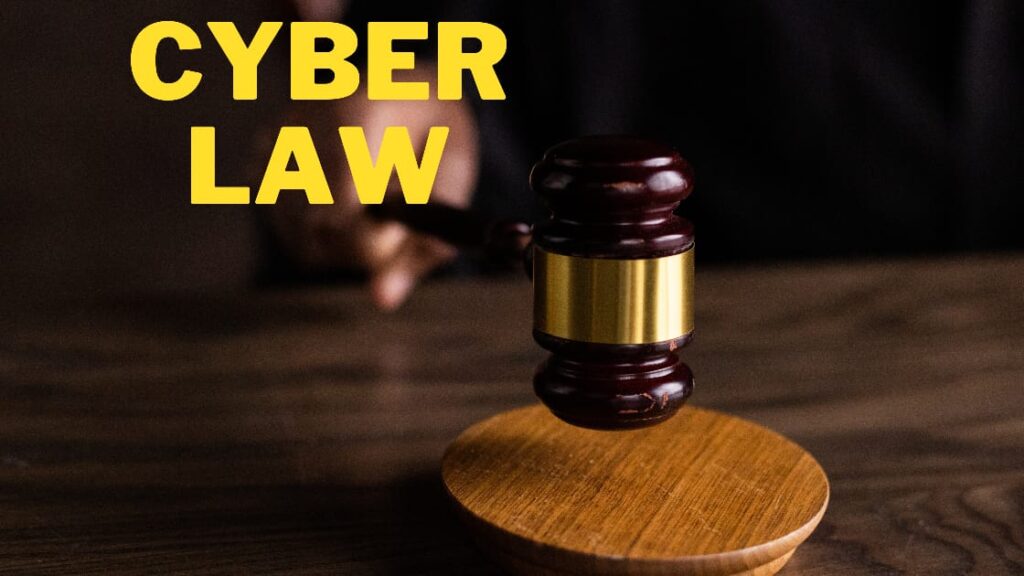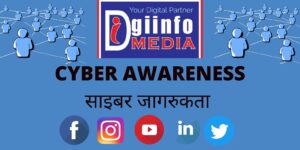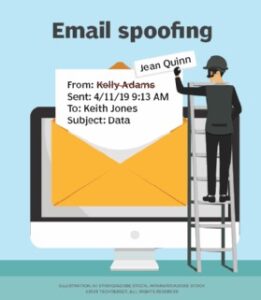
The Information Technology Act 2000, being the first legislation on technology, computers, e-commerce and e communication. The Act totally has 13 chapters and 90 sections. Sections 91 to 94 deal with the amendments to the four Acts namely Indian Penal Code 1860, The Indian Evidence Act 1872, The Bankers’ Books Evidence Act 1891 and the Reserve Bank of India Act 1934. The Act has chapters that deal with authentication of electronic records, electronic signatures etc. Several amendments are made to give effect to the IT Act in different legislation as in
The Indian Evidence act 1872 the admissibility of electronic records as an evidence, Presumption as to Digital Signature Certificates etc is been added in IPC the provisions relating to the digital signature, electronic records are been added (For detailed information link will be given below).
Let us look into some common cyber-crime scenarios which can attract prosecution as per the penalties and offences prescribed in IT Act 2000 (amended via 2008) Act. This will be containing the short definition of offense and subject to which offense can be committed:
Harassment via fake public profile on social networking site:
A fake profile of a person is created on a social networking site with the correct address, residential information or contact details but he/she is labelled as ‘prostitute’ or a person of ‘loose character’. This leads to harassment of the victim. Provisions Applicable:- Sections 66A, 67 of IT Act and Section 509 of the Indian Penal Code.
Online Hate Community:
Online hate community is created inciting a religious group to act or pass objectionable remarks against a country, national figures etc. Provisions Applicable: Section 66A of IT Act and 153A, 153B of the Indian Penal Code.
Email Account Hacking:
If victim’s email account is hacked and obscene emails are sent to people in victim’s address book. Provisions Applicable:- Sections 43, 66, 66A, 66C, 67, 67A and 67B of IT Act.
Credit Card Fraud:
Unsuspecting victims would use infected computers to make online transactions. Provisions Applicable:- Sections 43, 66, 66C, 66D of IT Act and section 420 of the IPC.
Web Defacement:
The homepage of a website is replaced with a pornographic or defamatory page. Government sites generally face the wrath of hackers on symbolic days. Provisions Applicable:- Sections 43 and 66 of IT Act and Sections 66F, 67 and 70 of IT Act also apply in some cases.
Introducing Viruses, Worms, Backdoors, Rootkits, Trojans, Bugs:
All of the above are some sort of malicious programs which are used to destroy or gain access to some electronic information. Provisions Applicable:- Sections 43, 66, 66A of IT Act and Section 426 of Indian Penal Code.
Cyber Terrorism:
Many terrorists are use virtual(GDrive, FTP sites) and physical storage media(USB’s, hard drives) for hiding information and records of their illicit business. Provisions Applicable: Conventional terrorism laws may apply along with Section 69 of IT Act.
Cyber Pornography:
Among the largest businesses on Internet. Pornography may not be illegal in many countries, but child pornography is illegal inIindia. Provisions Applicable:- Sections 67, 67A and 67B of the IT Act.
Phishing and Email Scams:
Phishing involves fraudulently acquiring sensitive information through masquerading a site as a trusted entity. (E.g. Passwords, credit card information) Provisions Applicable:- Section 66, 66A and 66D of IT Act and Section 420 of IPC.
Theft of Confidential Information:
Many business organizations store their confidential information in computer systems. This information is targeted by rivals, criminals and disgruntled employees. Provisions Applicable:- Sections 43, 66, 66B of IT Act and Section 426 of Indian Penal Code.
Source Code Theft:
A Source code generally is the most coveted and important “crown jewel” asset of a company. Provisions applicable:- Sections 43, 66, 66B of IT Act and Section 63 of Copyright Act.
Tax Evasion and Money Laundering:
Money launderers and people doing illegal business activities hide their information in virtual as well as physical activities. Provisions Applicable: Income Tax Act and Prevention of Money Laundering Act. IT Act may apply according to case.
Online Share Trading Fraud:
It has become mandatory for investors to have their demat accounts linked with their online banking accounts which are generally accessed unauthorized, thereby leading to share trading frauds. Provisions Applicable: Sections 43, 66, 66C, 66D of IT Act and Section 420 of IPC
This classification will be helpful to let us understand that which offense is attracting which sections and provisions in a layman language.
Sources:
Article By- Tania Chouhan
Editing By- Jasleen Kaur



Very well written and informative. Also has a reliable source!
Outstanding work